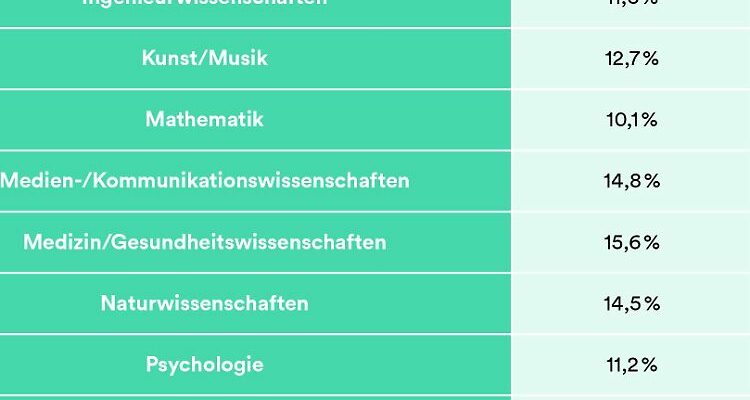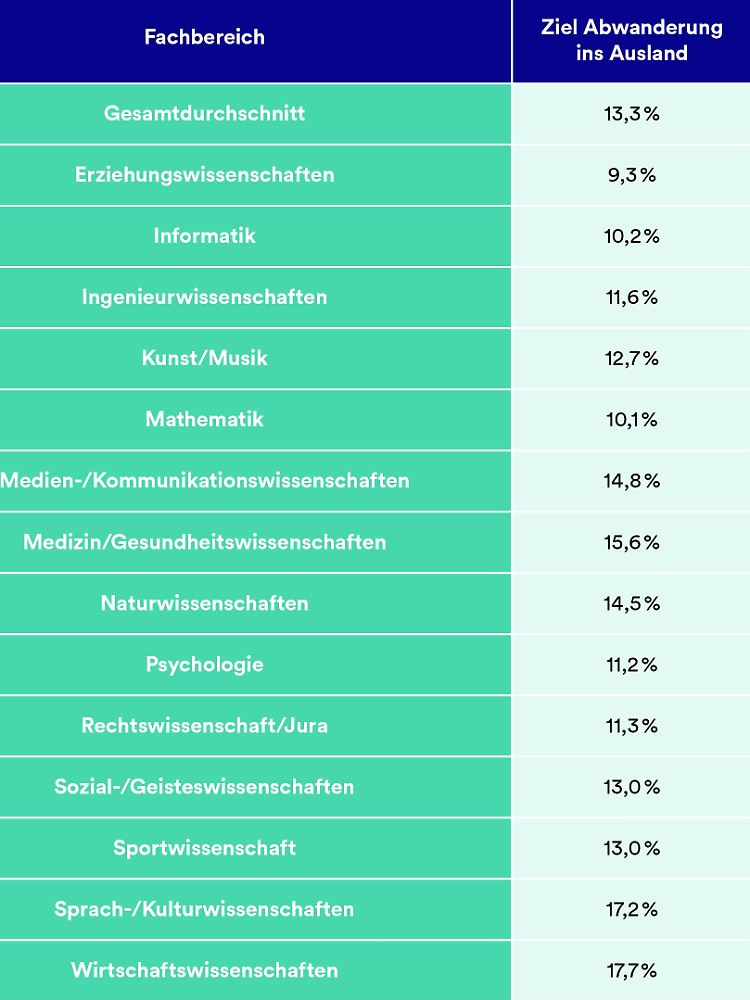Young specialists are leaving
Almost one in seven students wants to work abroad
March 14, 2024, 2:20 p.m
Listen to article
This audio version was artificially generated. More info | Send feedback
According to the DIHK, every second company in Germany complains about a shortage of skilled workers. The hope rests partly on young talent who are studying and in whose training Germany is investing a lot of money. However, a worryingly high number of young people do not want to stay in Germany at all.
There is an acute shortage of skilled workers in Germany. Due to immigration policy, it is not only the influx of urgently needed workers that is difficult. The situation also appears unlikely to improve in the future when it comes to training young talent, particularly in the important MINT subjects – mathematics, computer science, natural sciences and technology. According to a representative study available to ntv.de, more and more prospective skilled workers who are being trained in Germany do not want to stay here, but rather go abroad.
Almost one in five students is convinced that they will have better job opportunities there after completing their studies. This emerges from surveys by the personnel service provider Jobvalley and the Department of Labor Economics at Maastricht University. A total of 12,343 students from all over Germany were surveyed in October and November 2023.
For the urgently needed young talent from MINT subjects, the figure is even over 22 percent. A worrying development, because according to the industry association Bitkom, 49,000 IT positions in Germany are already unfilled, 12,000 more than a year ago. In the healthcare sector – which also includes prospective doctors – the rate is as high as 26.9 percent. The trend is becoming increasingly worse, write the study authors.
Training in Germany yes, working no
The assessment of job opportunities has consequences, because 13.3 percent of all students surveyed already have concrete plans to leave. That’s one in seven to eight students. As the study shows, students with a migrant background are significantly more likely to consider emigrating – regardless of whether they acquired their university entrance qualification in Germany or not. In the first group, 17.5 percent plan to emigrate, and in the second (educated abroad) 20.2 percent. “It is particularly alarming that we run the risk of losing every fifth to sixth student with a migration background – even though those affected have completed both school and university studies in the Federal Republic,” warns Jobvalley boss Clemens Weitz.
The numbers are also worrying because they show a brain drain, i.e. the emigration of above-average educated young people, across all professional groups. Weitz speaks here of a “threat to Germany as a business location”. According to the German Chamber of Commerce and Industry (DIHK), every second company already complains about a shortage of skilled workers. The development of young skilled workers reorienting themselves is exacerbating the current misery on the job market, says Weitz. “At the same time, we have to keep our own skilled workers in the country and create better prospects.”
In order to keep the next generation of skilled workers in Germany and slow down the emigration process, new approaches are needed, according to the Jobvalley boss. The students’ demand for perspective discussions, for example, shows that they would like more support from companies. They would have to start early in order to show the students the clearest possible career prospects.
The lack of attractiveness of Germany as a location also seems to play a role in the decision to emigrate among prospective skilled workers. It’s not just career opportunities in Germany that are largely pessimistically assessed. The current and future economic situation in Germany is also predominantly assessed negatively. 33.6 percent rate the current situation as “rather bad” and 35.6 percent rate the future of the economy. Conversely, 27.5 percent rate the current situation as “fairly good” and 33.7 percent rate the future of the economy as “rather good.”

